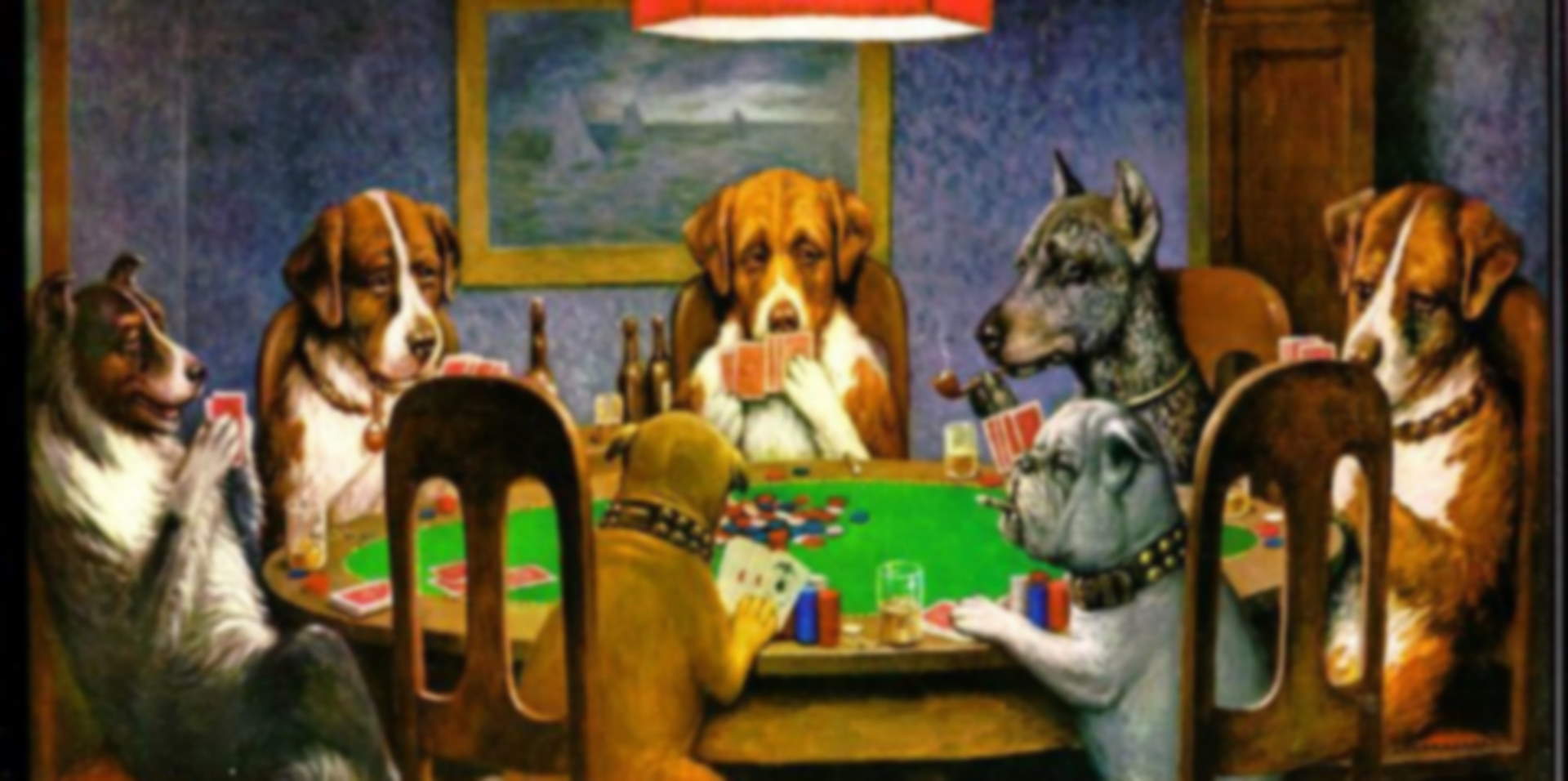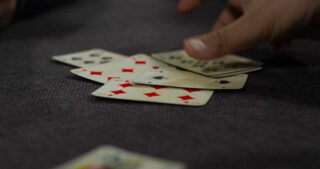

The fact I am referring to, is that your excess winning or losing swings do not increase proportionately to the number of hours you play. Rather, they increase proportionally to the square root of the number of hours played.
Say you are a break even player, playing in a game where the most you would win or lose in a six hour session is $500. After a hundred such sessions (600 hours) it would be very wrong to conclude that your results would range from minus $50,000 to plus $50,000. Rather they would almost certainly range from negative $5,000 to positive $5,000. You multiply the one session possible swing by the square root of 100.
The reason the above fact is very relevant is that it can be combined with the fact that the expected win of good players does increase proportionally to the total hours played, as opposed to the square root of the number of hours.
Take the case of a good player who plays in games where he figures to win an average of about $100 per session, while occasionally losing as much as $900. (In other words occasionally doing $1,000 worse than expected.) This is similar to the results of good players in loose $6-$12 games or passive $10-$20 games. What is the real risk for such players?
After four sessions he expects to be ahead $400. But bad luck could change that. A thousand dollars worth of bad luck will happen every once in a while in an individual session. But in four sessions the plausible bad luck is not $4,000, but only $2,000. You multiply $1,000 by the square root of 4, since he played 4 sessions. You subtract this $2,000 from the $400 he expected to win on average. Thus he might be down as much as $1,600.
Afer 9 sessions his $3,000 of possible bad luck, combined with $900 of expected win results is a possible negative $2,100 result. So far the longer he plays the worse off he might be. But let’s continue.
After 16 sessions his worst result would be $1,600 – $4,000 = $2,400. After 25 sessions it is $2,500 – $5,000 = -$2,500. Keeps getting worse. After 36 sessions it is $3,600 – $6,000 = -$2,400.What do we have here? These results indicate that the worse he could do after 36 sessions is not as bad as after 25 sessions. Let’s look further. After 64 sessions the worst case is $6,400 – $8,000 = -$1,600. After a hundred sessions we have $10,000 – $10,000 = 0. Voila!
The tortoise has caught up. With these parameters it would be highly unlikely that bad luck could keep the good layer behind after 100 sessions (although it could keep him many thousands below his expectation). Move to 400 sessions and his worst result would be $40,000 – $20,000 or $20,000 ahead.
In the above scenario we have a player who is practically assured of being winner after 100 sessions and whose maximum risk is about $2,500. That coincides nicely with the real world pros who play $6-$12 non-jackpot games.
What about not so passive $10-$20 games? Here a session loss will sometimes be as much as $1,500. If your expected win is still $100 you could still be behind after 100 sessions ($10,000 – $15,000 = -$5,000). In fact it wouldn’t be until you got 225 sessions under your belt that you could be virtually sure of being ahead. You would also need about a $6,000 bankroll to play comfortably under these conditions.
On the other hand, if you could average $150 per session in games with $1,500 maximum loss possibilities you would need only $3,750 and would once again be almost certainly ahead after 100 sessions. And if you were a great player who could average $200 per session with a max loss of $1,000, a mere 25 hours would guarantee profit (25×200 – 5×1000 = 0; Note: 5 is the square root of 25), while your greatest risk at nine hours or so would be about $1200 (9×200 – 3×1,000 = -1,200; Note: 3 is the square root of 9).
You should plug your own numbers into these equations to see where you stand. I believe the most revealing revelations are:1. You can go a long time without being ahead even if you are a very good player.2. In spite of the above, short term bad luck can only hold you back so far. It is practically impossible to be losing 300 big bets if you can play at all. That much you can blame on luck. Any more and you must blame yourself.
David Sklansky
Dieser Artikel erschien auf PokerOlymp am 11.09.2007.


